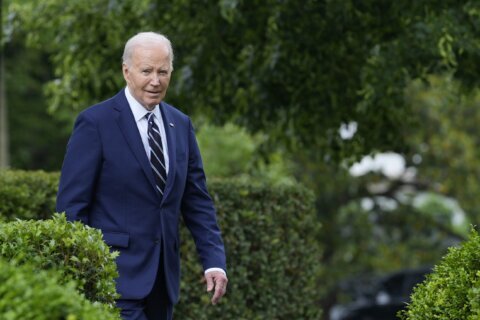Admissions committees review thousands of MBA applications every admission cycle from applicants hoping to be admitted to their dream business school. B-schools seek specific criteria in potential candidates, and understanding how to present your talents to fit that criteria may give you an edge in the applicant pool.
“The application is a very holistic process,” says Colin Davis, senior director of marketing and operations for MBA programs at the University of Chicago’s Booth School of Business in Illinois. “Beyond aptitude and self-awareness, our admission committee looks for purpose and clarity in why applicants seek an MBA and how Chicago Booth’s program complements their goals.”
Applications allow candidates to tell their story and emphasize their unique traits and experiences. Here are six attributes of a successful MBA applicant, according to experts.
Strong Leadership Skills
Business schools want to see evidence of a leader, experts say.
“For years I have always said that leadership is the most important element in a business school application. And that’s always been the hardest to define,” says Betsy Massar, founder of Master Admissions, a California-based consultancy that helps applicants get into business school.
She says it’s important for MBA candidates to identify their individual leadership experience and leverage it to showcase their character “and also their ability to use judgment and personal strength in the face of ambiguity or difficulty.”
[READ: 3 Factors to Help Find the MBA Program That’s Right for You.]
MBA admissions committees are looking for the next generation of future leaders, says Nellie Gaynor, MBA admissions counselor at college consulting firm IvyWise and former associate director of admissions at The Wharton School of the University of Pennsylvania. This means demonstrating “how you addressed a problem, developed a solution and how you inspired and motivated others to action,” she says.
Donna Bauman, a senior MBA admissions counselor at Stratus Admissions Counseling, says this is particularly important in a tight job market as MBA programs navigate challenges in the hiring market. “People who have demonstrated the ability to create value will always rise to the top.”
Authenticity
Expressing authenticity in your application means being yourself and reflecting on who you are as an MBA candidate.
“We want applications, specifically the required essays and interviews, to be authentic and we encourage applicants to avoid generic responses,” says Steve Thompson, senior director of full-time admissions at the Kellogg School of Management at Northwestern University in Illinois.
Thompson says this means going “beyond what you do for a living and show us the how and the why.” For example, he says, an applicant’s admission essays should “address our question directly while providing concrete examples and genuine insights.”
An MBA personal statement should also tie all the pieces of the MBA application together.
“Don’t tell the story that you think the admissions committee wants to hear,” Gaynor says. “Be genuine and share your unique story. Craft a narrative that connects the dots of your background and previous life experiences to your future career goals (and) that demonstrates self-awareness and thoughtfulness.”
Quantitative Competency
A business or economics undergraduate degree isn’t required to apply to an MBA program, but demonstration of quantitative competency is important, experts say.
More than half of Chicago Booth’s Class of 2025 had an undergraduate major that was neither business nor economics, Davis says, “so it is certainly not a requirement.”
[Related:How to Get an MBA in Less Time]
Admission committees want to know that candidates can succeed in an MBA classroom, he says. Quantitative competency and abilities can be demonstrated through work experience that led to results and organizational impact, or scoring high on the quantitative section of the GMAT or GRE, he says.
Other ways to show quantitative competency include strong letters of recommendation or essays that “articulate how you’ve applied quantitative reasoning in various environments and how you might leverage these skills in an MBA classroom,” Davis says.
Susan Cera, MBA director at Stratus, recommends possibly taking “a quant-focused class so you can hit the ground running when you arrive at business school.” The University of California, Los Angeles and the University of California, Berkeley offer online, self-paced, pre-MBA math courses that introduce students to the basics of accounting, statistics, finance, economics and spreadsheets, she notes.
Stellar Communication Skills
Knowing how to effectively communicate is an important soft skill for MBA candidates and their future careers.
“From your essays to your resume to your interview, you will need to demonstrate your ability to convey your thoughts clearly and effectively. These skills will later serve you in the classroom and in your business career,” Gaynor says.
Solid communication skills are “at the heart of our ability to interpret, share feedback and build consensus in diverse cultural landscapes” for decision-making, building strong working relationships and working collaboratively in teams, she says.
Highly Recommended
MBA hopefuls should select recommenders who know them and their abilities and aspirations well and can highlight their talents.
“Recommendations give the admissions committee a third-party glimpse into your profile,” Cera says. “You want to pick recommenders who will be your champions and sing your praises.”
[Related:Typical MBA Courses That Applicants Should Know About]
Letters of recommendation should detail how you work with others and approach challenges and how you’ve made an impact in your role, she says. “For programs that require two recommendations, pick individuals who have observed your work in different capacities so they can showcase a variety of examples of your engagement and contribution.”
For example, MBA students will need to run numbers, solve quantitative problems, identify patterns in information and make data-driven decisions.
Gaynor says a recommender could emphasize a candidate’s skill in data analysis. “Your ability to present the information and grab the attention of the audience will be crucial. Have your recommenders provide an example of how you demonstrated this skill in their letter.”
Fits With School Community
Admissions committees are also looking for candidates who fit well into the business school’s community.
“Pursuing an MBA also means joining a lifelong network,” Davis says. “We want to understand how candidates resonate with our community values, such as curiosity, diverse perspectives, flexibility and a pay-it-forward mentality.”
He says this is a big reason why Booth alumni or students conduct interviews with MBA candidates. “Applicants should try to integrate these qualities across all relevant components of their application — essays, recommendation letters, goals and interviews — tailoring their narratives to reflect genuine experiences and aspirations.”
This also means explaining how your career plans post-graduation align with the program and can benefit from the school’s career, community and curricular resources to take that next step.
“There should be a natural connection between your professional background, your goals” and how a prospective school’s resources “can help you get there,” Davis says.
More from U.S. News
3 Things to Do Before Starting an MBA Program
How An MBA Can Lead to Career Change
10 Most Affordable Online MBA Programs
6 Key Qualities of Successful MBA Candidates originally appeared on usnews.com







